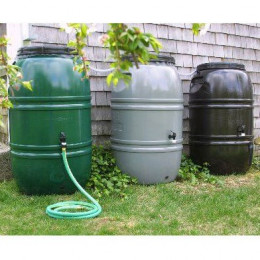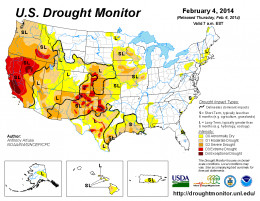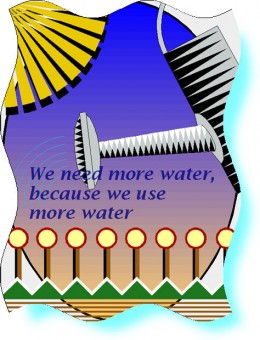What is the best solution for the Ca water shortage 2015

Passage of the Rainwater Recapture Act of 2012 affords residential users and private and public entities with a new source of on-site water supply. After every major drought in California eventually the El Nino storms come. People should be encouraged to capture rain water for land use in barrels. It's a waste not to capture rain water.
More money should also be invested in companies that covert ocean water into drinking water. Manoj Bhargava, college dropout billionaire CEO of 5-Hour Energy drinks, is committed to doing just that. His product the Rainmaker, turns sea water, or any dirty water, into fresh distilled water. It mimics nature by heating the water and turning it into water vapor. Then, the machine distills the water vapor and turns it back into water.
While current technology can only take sea water and turn it into drinking water, it cannot turn it into water which can be used for agricultural purposes because it still has too much salt. This easy, modular system can be used all over the world.
"Necessity is the mother of all invention" - Albert Einstein- Daniel Gottlobposted 9 years ago
0

Agricultural & industrial use of water greatly dwarfs residential usage. Even if every resident cut their water use in half it would amount to maybe a 5% reduction of water usage or less overall. One big issue is that the cost of water is no where near uniform & reflective of the true cost.
Groundwater in particular is an issue & becomes significantly more strained in times of drought. Since the 1960's, the Central Valley has depleted over 70 million acre feet(23 trillion gallons) of groundwater which is scary because this is not an unlimited source.
One potential remedy to curb use is to set a cap on the groundwater use from private wells & set a tax after that on a continual basis or during drought times. Private well production is not very regulated in California. However, there were some laws enacted in December 2014 notably AB 1739, SB 1168, and SB 1319 that helped in this matter going into effect in 2015. If you better reflect the true cost of water it makes it less economical to grow water heavy crops like pistachios, almonds, & alfalfa versus ones that are not as water intensive. Say for example, after all production costs & sales; the profit for a pound of almonds and walnuts was $5.50 & $5 respectively. However it takes 2,000 gallons and 1,000 gallons of water respectively to make them. Water is currently mostly independent of the cost. Now, let's say every 1,000 gallons was taxed a $1. Now, their profit is $3.50 and $4.00 respectively. Now the walnut makes you $0.50 more in profit than the almond. This is an oversimplification & the market would adjust some but you see the point. If water has "no cost" then it doesn't matter what you use it for.
Keep in mind, this is not a free lunch & those costs would be passed to the consumer. Which would mean the cost of water crops would go up with high water crops getting the highest hit & the cost of meat & ownership of livestock would go up as their feed cost increases. However, this would further curb the demand for those items.
In the case of industrial use, this also gives motivation for companies to be more efficient in water use or invest in other technologies via desalinization, forced osmosis, or etc to tap in less restrictive bodies of water but there is also the economical component to that was well.
Overall, there's got to be some cost to water proportional to use. The trick is not hurting those that need water & what's grown with it for life while not crippling the economy.At some point water is going to cost more, but money should be spent now to capture more water, desalinate ocean water, recycle waste water, and build a water pipeline from those parts of the country that have annual flooding.
Related Discussions
- 12
How long can you live on the food and water you currently have in your home?
by Tempus Fugit 12 years ago
How long can you live on the food and water you currently have in your home?When it comes to water, How many gallons are equipped to filter for survival?
- 2
If I have the iphone 3G and upgrade to the 4G what will the cost be?
by bling22 15 years ago
If I have the iphone 3G and upgrade to the 4G what will the cost be?
- 28
Is water in danger of becoming a scarce resource?
by backporchstories 13 years ago
With the record sweeping heat spreading thoughout the US and drying the land at a fast pace, do you feel confident in your water supply? Some cities are on the verge of rationing water consumption, that have never gone through this step in the past. How is the water in your area and do...
- 13
Water Issues
by benboothe 14 years ago
In the southwest there is water, most of it is in the clouds that pass over us from West to East. Billions of tons of water floats above us every day. A large percentage of water is under ground. Only a small percentage of our water is in lakes and rivers.98% of the Water in the Southwest is not...







